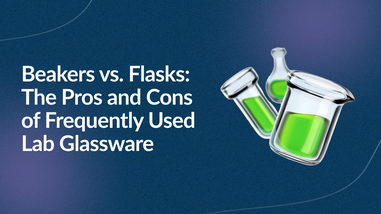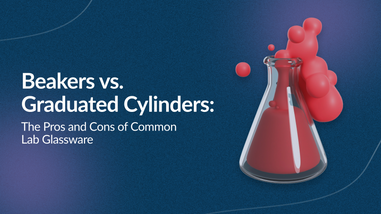- No products in the cart.
Pipettes, used for measuring small volumes of liquid, are one of the most commonly used instruments in the lab. So, how do you know which tip to use when there are so many on the market? It all boils down to which tip meets the quality, performance, and ergonomics best suited for your particular pipette and situation.
Using the correct pipette tip is crucial when it comes to ensuring that the specific volume of liquid is dispensed and aspirated without any contamination in the process. The adage, “You get what you pay for”, rings true with pipette tips. Always choose high-quality tips as this will be important when it comes to precision and accuracy.

Choosing a tip that is a good fit for your pipette is essential. If the tip does not fit the pipette properly then it will compromise the precision and accuracy. If the seal is not tight between the pipette barrel and the tip then air can escape and affect the volume of liquid aspirated and eventually the volume dispensed.
Pipette tips can be broken down into either a general pipette tip or a filtered pipette tip. Each one is used under different conditions and situations.
Features And Benefits
Filtered Pipette Tips
Barrier or filter tips are used when pipetting corrosive chemicals, volatile chemicals, viscous chemicals, or anything that could contaminate your pipette or samples. These tips are fitted with a filter inside of the tip. The filter protects from aerosols forming or aspirating viscous or volatile solutions into the barrel which can contaminate and damage the pipette itself.
Filtered tips are usually pre-sterilized, non-pyrogenic, and DNase/RNase-free. These tips are best used for sensitive applications such as qPCR. The barrier prevents contamination of the PCR by stopping sample carryover from the pipette.
Filter tips are also ideal for new users. Pipette contamination occurs frequently when a new lab member aspirates liquid accidentally into the pipette. It’s much more cost-effective to throw away the tip than to repair the piston in the pipette.
These tips are made out of clear polypropylene or PP. The PP filters protect pipettes and samples from contamination. Filtered tips are commonly used in forensics and clinical diagnostics.
General Pipette Tips
Non-barrier or general tips are designed for everyday use in the lab, especially when working with chemicals that will not contaminate your pipette. Non-filter, non-barrier, general or standard tips are used for many non-sensitive applications. These tips are generally used when sterility is not important. These tips are commonly used for loading agarose gels and isolating plasmid DNA. These tips typically come in bulk or pre-racked.
Pros And Cons
Filtered Pipette Tips
The advantage to the barrier or filtered tips is that they protect your pipette and samples from becoming contaminated when using sensitive chemicals. This is especially the case when there is a chance of cross-contamination or the sample could contaminate the lower section of the pipette. The filter prevents the splashing of liquid inside the pipette and aerosols from permeating into the tip cone of the pipette. The filtered tips also come pre-sterilized. The disadvantage is that filtered tips are a little more expensive but it’s more cost-effective to replace a tip than the pipette itself.
General Pipette Tips
The advantages of the general pipette tips are that they are the more standard, universal, and most commonly used tip in a lab, especially for non-sensitive chemicals. They can be used for a wide variety of pipetting applications. Another advantage is that these tips tend to be less expensive.
Conclusion
Choosing the right pipette tip for your experiment or test in the lab can be an overwhelming process. There are so many types of tips to choose from. Precision and accuracy are essential when it comes to lab experiments and tests so it’s important to choose the tip that will give you the best of both.
Contamination is another aspect to consider. General pipette tips are used when sterility is not important and contamination is not a concern. Filtered tips are used in the exact opposite scenario when sterility is important and contamination is a concern. No matter which tip you go with just make sure that it is of high quality so that it maintains its form, performance, and seal.
Lab Pro offers a large variety of pipette tips. For over 40 years, Lab Pro Inc. has been committed to delivering the highest quality chemicals, lab equipment, distance learning kits, lab supplies, and cleanroom PPE apparel to medical device companies and laboratories worldwide. To learn more, visit the biggest Lab Supply showroom in California, or contact us online or at 888-452-2776.












































